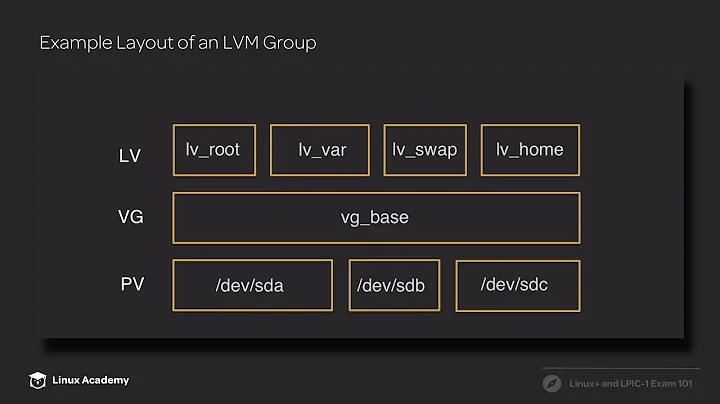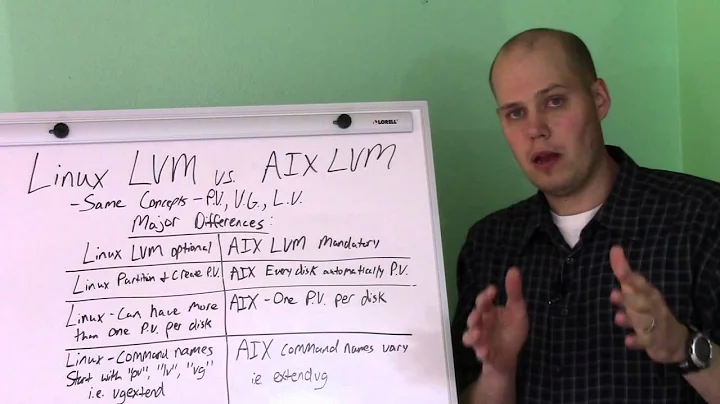What's the difference between Linux and Linux LVM?
Solution 1
Linux LVM is the Linux Logical Volume Manager. Essentially, it's a more sophisticated way of handling disks and avoids the limits with the legacy concept of partitions.
If you didn't configure LVM originally, then you shouldn't use it unless you want it specifically. So you should pick Linux. At this stage you're not formatting, you're creating a container (partition) and telling it what kind of container it is.
The second stage, when you create and format a filesystem describes how the data in that container will be used (that's a rough approximation). Different filesystems have different performance and security considerations.
It's not a problem, as you put it, it's about choice. Windows does handle disks in the same way (on PC compatible hardware), but some of these choices are hidden from you, but they're still being made (on your behalf).
Solution 2
If you have to ask the question, don't use LVM.
LVM is the Logical Volume Manager. It allows you to do things like group several physical disks together to appear as a single logical disk (similar to but not the same as raid0).
The only real advantage to using LVM with a single disk is snapshots.
But again, if you have to ask then don't use it.
Related videos on Youtube
user2935706
Updated on September 18, 2022Comments
-
user2935706 over 1 year
If I want to install new hard drive should I make the file system Linux or Linux LVM?
Also after that I've got to format again with
mkfs.ext4. Actually what are we doing?The first one is formatting and the second one is formatting again? Why doesn't Windows have this issue?




